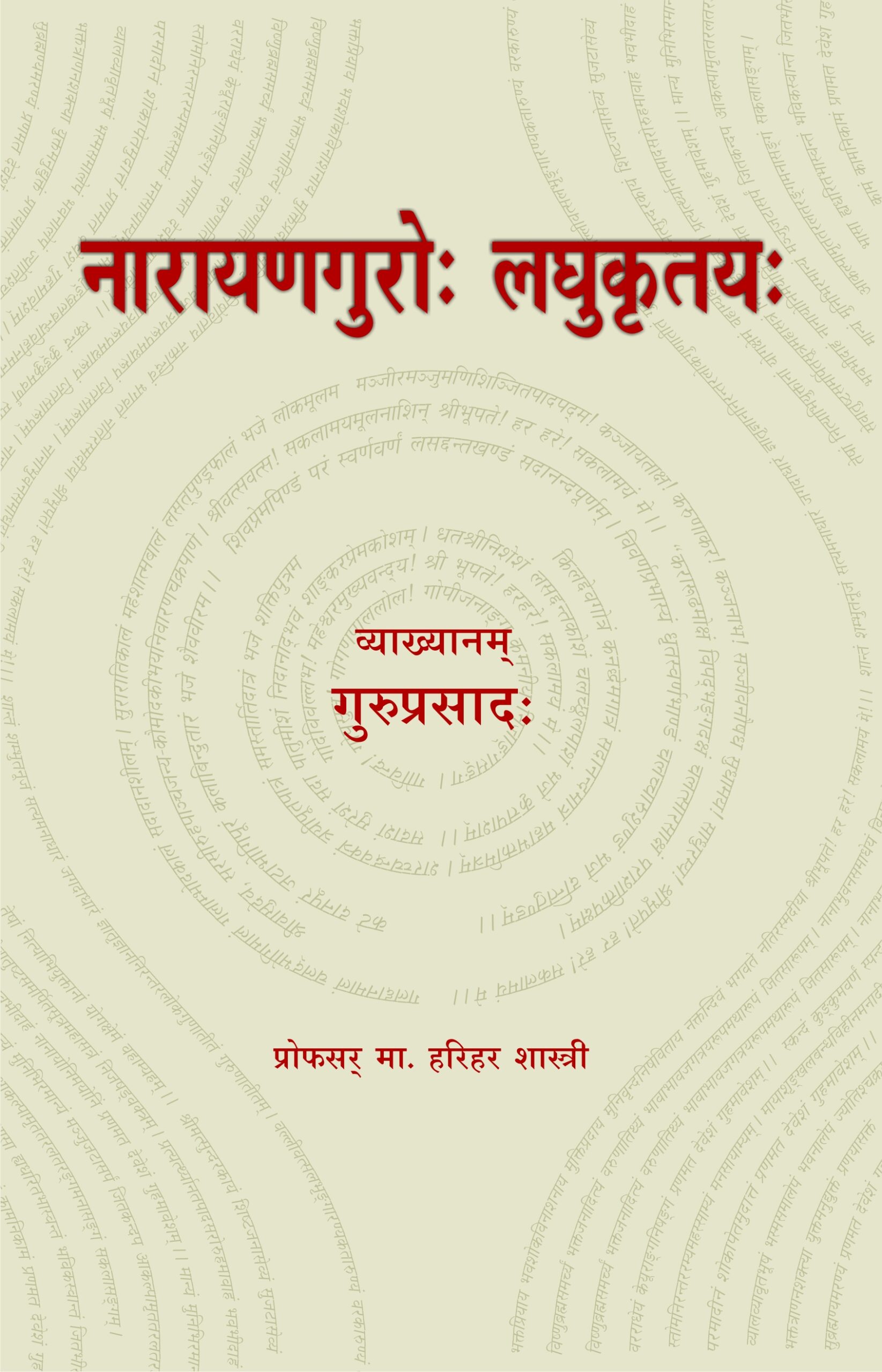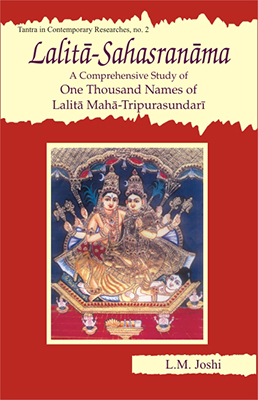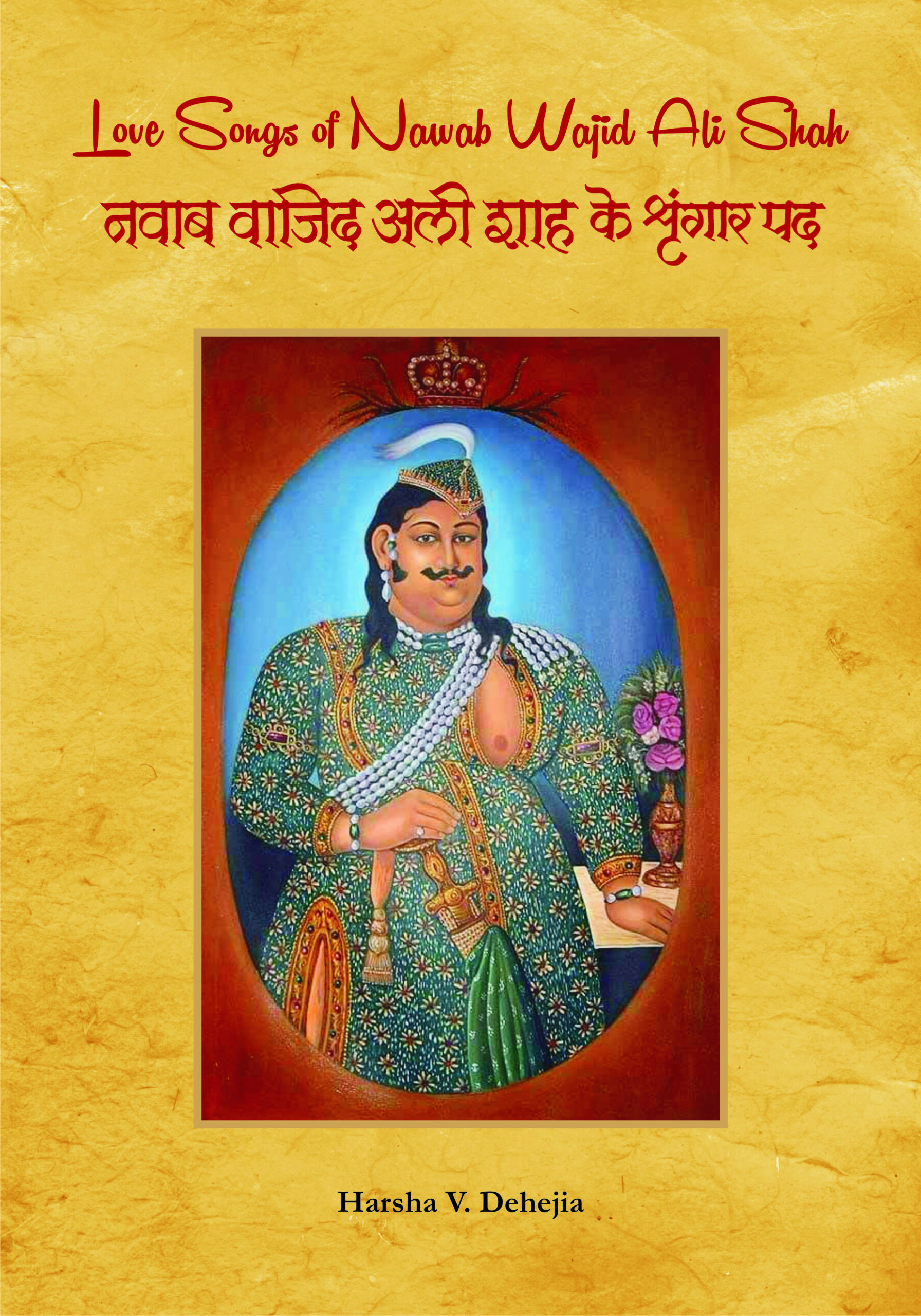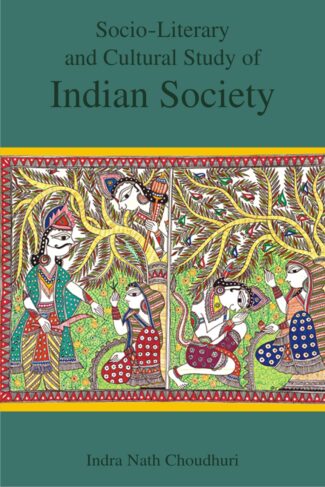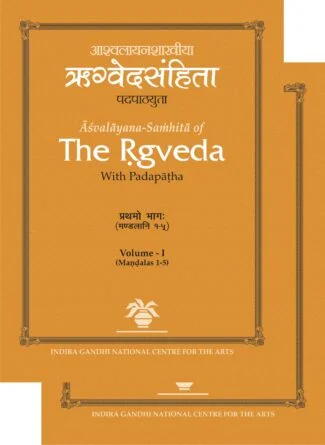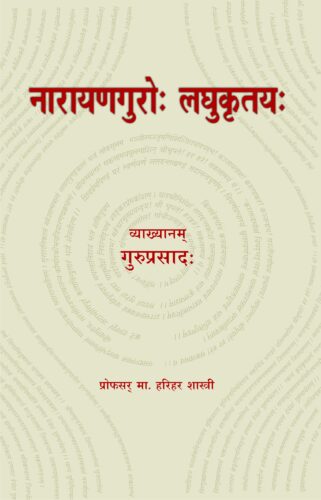
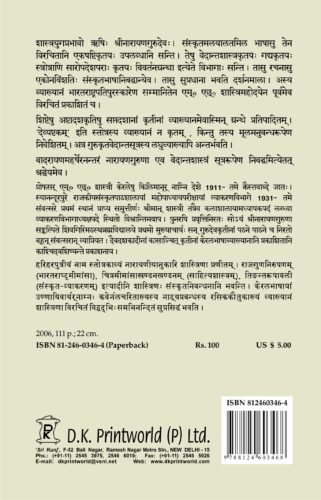
Narayanaguru Laghukr...
Narayanaguru Laghukrtiyah
by: M. Harihar ShastriThe book written in Sanskrit with original verses, provides details of shorter works of Narayana Guru, a great poet of southern India. Comprising 17 chapters, it highlights his anthologies in praise of Lords Ganapati, Subrahmanya, Siva, Visnu, etc.
₹100.00 Original price was: ₹100.00.₹90.00Current price is: ₹90.00.
ISBN: 9788124603468
Year Of Publication: 2006
Edition: 2nd
Pages : 111
Language : Sanskrit
Binding : Paperback
Publisher: D.K. Printworld Pvt. Ltd.
Size: 22 cm.
Weight: 200
The book written in Sanskrit with original verses, provides details of shorter works of Narayana Guru, a great poet of southern India. Comprising 17 chapters, it highlights his anthologies in praise of Lords Ganapati, Subrahmanya, Siva, Visnu, etc.
- Sale!Brhadaranyaka Upanisad Vol. 1 Madhu Kanda by: Nitya Chaitanya Yati
₹800.00Original price was: ₹800.00.₹720.00Current price is: ₹720.00.The Brihadaranyaka Upanishad is one of the ten major Upanishads. A dialectical narration that unabashedly stands up to the rational scrutiny of the modern mind, it is directed towards both the individual aspirant caught up in the dark morass of confusion and the philosophic thinker in search of rare pearls of wisdom from humanitys treasury. Guru Nityas matchles commentary will enable the reader to discover the ancient seers timeles insights, to appreciate a fully-developed, integrated system of thought, and, most importantly, to learn to connect with what is real and enduring in his or her own essence. Schematically, the Brihadaranyaka Upanishad a brilliant discourse from the Yajur Veda is set out in three volumes, entitled: Madhu Kanda, Muni Kanda and Khila Kanda. In his planned three-volume thorough-going, meticulously analytical commentary. Guru Nitya distills the wisdom teaching of the Brihadaranyaka Upanishad, drawing on his intimate understanding of the human psyche, as well as both Eastern and Western philosophy, science, art and literature. Dwelling in turn on each of its 435 mantras, its poetic charm, myths, metaphors, images and symbols, Guru Nitya recreates and expands the Upanishadic vision of our own nature, human interaction, and the cosmos, and their relation to the unmoved essence of all. With highly useful appendices and a comprehensive index, the commentary will hold an enduring appeal for both scholars and discerning readers.
- Sale!Lalita-Sahasranama A Comprehensive Study of One Thousand Names of Lalita Maha-Tripurasundari by: L.M. Joshi
₹1,500.00Original price was: ₹1,500.00.₹1,350.00Current price is: ₹1,350.00.In the Hindu sacred literature, Sahasra-namas: the texts embodying literally “the Thousand Names” of a deity, constitute a genre in their own right. And Lalita-Sahasranama (LS) is a veritable classic in the traditional writings of the kind — a classic widely acknowledged for its lucidity, clarity and poetic excellence. A medieval work of unknown authorship eulogising Shakti: the Mother Goddess, this Sahasranama is not just a masterly exposition of Shri Lalita’s cult, but also sets out the deity’s diverse epithets — like, for instance, Kundalini, Nirguna, Saguna, Parashakti or Brahman — which continue to evoke reverence as mantras with ‘mystic powers’. Also included among these names are the goddess’s other panegyric descriptions that have come to have profound, esoteric connotations in tantric practices — epitomizing, thus, the fundamental tenets of tantrashastra. Here is a brilliant critical edition of Lalita-Sahasranama meticulously analysing, for the first time, each of Shri Lalita’s thousand names — by a variety of themes, like the Goddess’s conceptual representations, anthropomorphic forms, disposition, abodes, kinships/consorts, ritualistic worship, and her supremacy in pantheonic hierarchy. Also explaining and interpreting anew these thousand names on the basis of time-honoured commentaries, Dr. Joshi under-scores the high importance of Lalita-Sahasranama in philosophy, tantra, yoga, sahasranama literature, and rituals of various descriptions. The book includes the original Sanskrit text of LS, its romanised transliteration and, additionally, an Appendix listing Sri Lalita’s thousand names in the A-Z sequence.
- Sale!Love Songs of Nawab Wajid Ali Shah by: Harsha V. Dehejia
₹795.00Original price was: ₹795.00.₹716.00Current price is: ₹716.00.This impressively illustrated volume brings forth the evergreen spirit of a Muslim ruler of Awadh, Nawab Wajid Ali Shaw (1822-87), in composing love poetry taking a cue from the amorous Krishna leela and assimilating and practising the same in personal life. A trained Kathak dancer himself and a dedicated patron of poetry, painting and performing arts, Wajid Ali Shah immersed in the rasa of dance, music and drama, and got deeply indulged in the many an expression of shringar, while administering the political affairs of his state.
Recalling the different facets of Nawab Wajid Ali’s life, the book explores the state and fame of Lucknow, of his times, where the Nawab lived a life of refinement and pomp, and attracted the best talents in arts and crafts. It also portrays how were dance and music enjoying pride of place during his reign.
While presenting a penetrating account of Ali Shah’s poetry, the book revisits his musical scholarship, history of his times and presents his poems with English translation. It as well showcases the best paintings centring around his personal and cultural life, and guides one go through the religious and cultural harmony prevailed in Awadh where a lot of factors were at play effecting acculturation between the Hindus and the Muslims, popularly known as the Ganga-Jamuni tehzeeb. - Sale!Socio-Literary and Cultural Study of Indian Society by: Indra Nath Choudhuri
₹1,500.00Original price was: ₹1,500.00.₹1,350.00Current price is: ₹1,350.00.The Socio-Literary and Cultural Study of Indian Society from Ancient to Modern is a search for India’s heritage: Hindu, Sufi and about Nationalism and India’s freedom from her colonial past. It is analytical but not learnedness. The author believes as Iqbal, the famous Urdu poet, said: “Transcend your reason because though it is a glow, it is not your destination; it can only be the path to the destination show.” People, both Indian and foreign, who want to understand Indian heritage from Ancient to Modern in a simple, agreeable style and friendly manner, is the author’s destination. In this volume, he has tried to demolish many myths like dharma is religion, Vedas are Śruti though the Almighty ordered six ṛṣis to write them down. A Hindu is just not emotional in mind, he also believes in analytic discussion (tarka). Upaniṣads are not just created by ṛṣis but also by a revolution unfolded by the students by barraging questions after questions.By explaining about the vitality of India and many other subjects, the book elucidates many things about the idea of India in an authentic manner. The readers will find here many varieties of theological explication, ultimately leading to the celebration of life while searching for the divine and realizing the self.
- Sale!Asvalayana-Samhita of The Rigveda (2 Vols. Set) by: B.B. Chaubey
₹2,500.00Original price was: ₹2,500.00.₹2,250.00Current price is: ₹2,250.00.Among the twenty-one Sakha-Samhitas of the Rigveda, as mentioned by Patanjali, only seven Samhitas were known by name and among these too, only one Sakala-Samhita was available in printed form so far. Now with the publication of the present editon of the Ashvalayana-Samhita a complete picture of a new Sakha-Samhita will come to fore for the first time. In comparison to the Sakala-Samhita, the Ashvalayana-Samhita has 212 additional mantras among which some occur in the common suktas and others form 16 additional complete suktas. Among these additional suktas special mention may be made of Kapinjala-sukta (II.44), Lakshmi-sukta (V.88-89), Pavamana-sukta (IX.68), Hiranya-sukta (X.130), Medha-sukta (X.155) and Manasa-sukta (X.171).
The book in two volumes presents the full text of the Ashvalayana Samhita of the Rigveda with padapatha, marked with proper accent marks. The additional mantras of the Ashvalayana Samhita followed by their translation in English and Hindi are also provided at the end of the Samhita text.
In a detailed introduction of the text the learned editor has examined the existence of Sakha-Samhitas of the Rigveda as mentioned by the Puranas, Patanjali, Mahidasa and other authorities, scrutinising textual evidence in support of them. The focus is, however, on the Ashvalayana-Samhita, with a background on Acarya Ashvalayana and exploring the antiquity, treatment of accent and padapatha of the text by referring to various sources.


